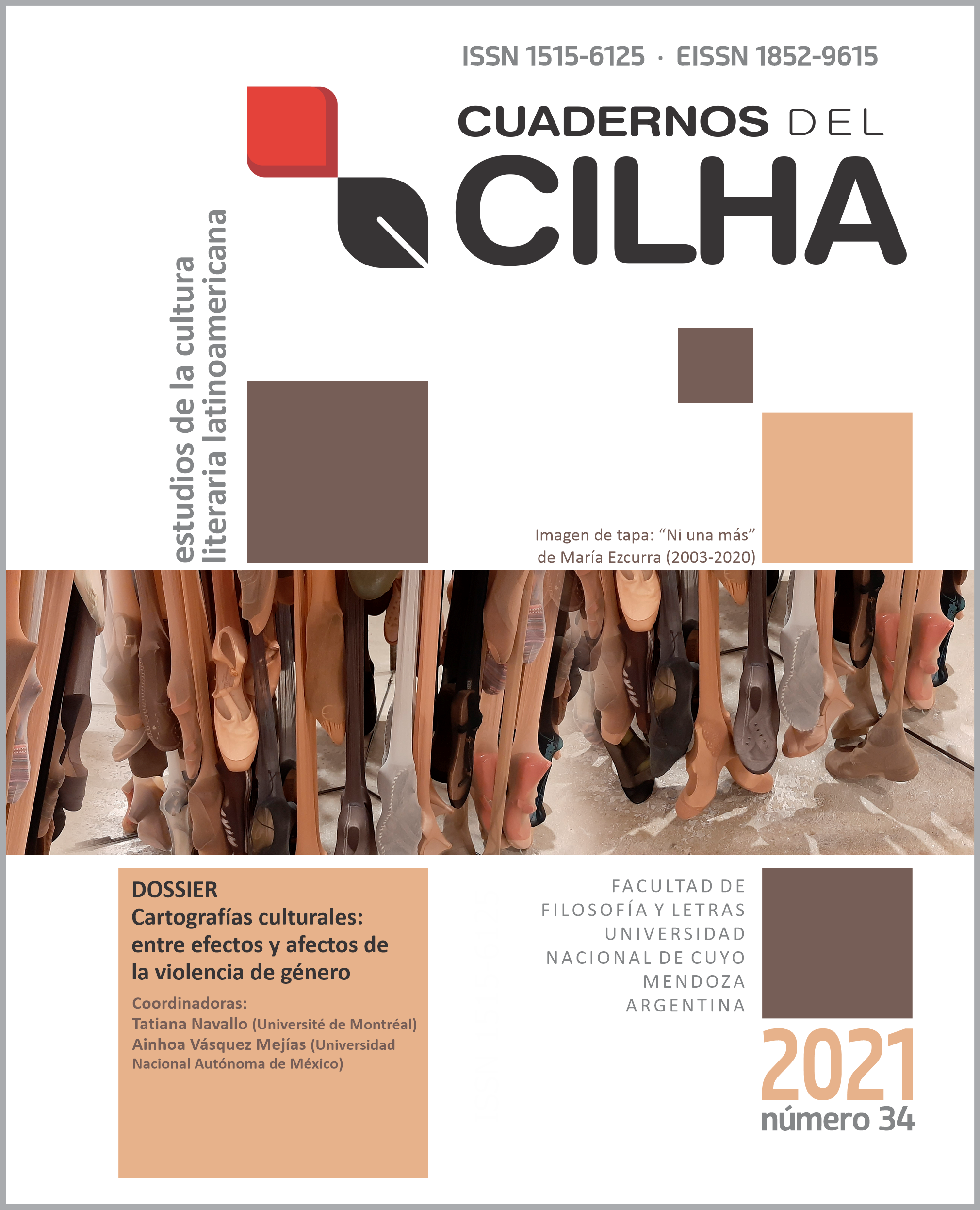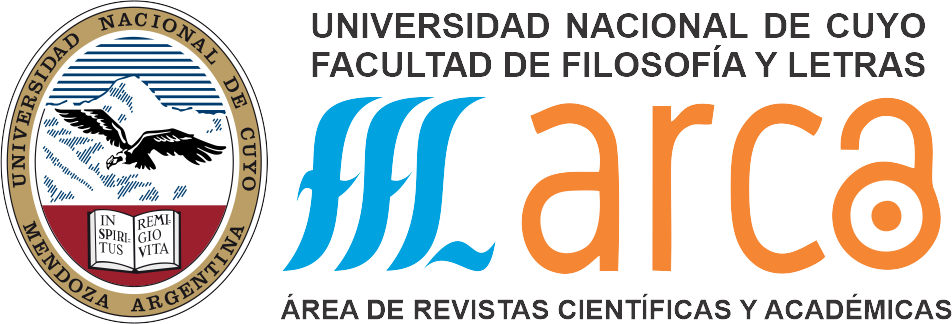Trans-foundation of Argentina.
Nation, authorship and masculinities in Gabriela Cabezón Cámara’s novel Las aventuras de la China Iron
DOI:
https://doi.org/10.48162/rev.34.014Keywords:
Argentina, Nation, Masculinity, Authorship, GenderAbstract
Based on the fact that there are narrations over which the configuration of a nation is based (Benedict Anderson), this work’s author carries out an analysis on Las aventuras de la China Iron and on its proposal to go over the narration over which certain notions about “the argentinian” have been built. It is analyzed, particularly, the constructions of both genders man and woman. To carry out such an analyzis, this work has been devided in two main parts: the first one is a review on masculinities and gender that are in Martín Fierro —the Argentina’s fundational text—, and the second part is an study on the proposals that Cabezón Cámara’s novel carries out to distort the concepts of nation, masculinities and authorship, all they triggered by the José Hernández’s work and which have been osified in Argentina by means of various ways made by the argentinian status quo.
References
Aira, C. (2017). La liebre. Era.
Aira, C. (1984). El vestido rosa. Las ovejas. Korn Editora.
Anderson, B. (2006). Imagined Communities. Verso.
Bolaño, R. (2017). El gaucho insufrible. Alfaguara.
Borges, J. L. (1995). Artificios. Alianza.
Borges, J. L. (2009). El Aleph. Debolsillo.
Bourdieu, P. (2000). La dominación masculina (trad. Joaquín Jordá). Anagrama.
Cabezón Cámara, G. (2018). Las aventuras de la China Iron. Penguin Random House.
Cabezón Cámara, G. (2018). La Virgen Cabeza. Nitro Press.
Cabrera, M. F. D. (2020). El peso de la escritura: crítica feminista y ficciones del cuerpo. Estudios. Filosofía práctica e historia de las ideas, 22, 1-16. http://www.qellqasqa.com.ar/ojs/index.php/estudios/article/view/367
Di Benedetto, A. (1978). Aballay. Adriana Hidalgo.
Fandiño, Laura. (2019). Canon, espacio y afectos en Las aventuras de la China Iron, de Gabriela Cabezón Cámara. Hispanófila, 186, 49-66. https://doi.org/10.1353/hsf.2019.0032
Fariña, O. (2011). El gaucho Martín Fierro. Interzona.
Fleisner, P. (2020). El desierto era parecido a un paraíso. Aventuras posthumanas en una novela de G. Cabezón Cámara. Revista de filosofía de la PUCRS, 65, 1-13. https://doi.org/10.15448/1984-6746.2020.2.37839
Halberstam, J. (2008). Masculinidad femenina (trad. Javier Sáenz, trad.). Egales.
Hermosilla Sánchez, A. (2007). El gaucho argentino: una interpretación mítico-simbólica de sus avatares literarios a partir de la construcción histórica como nació de la Argentina. Espéculo: revista de estudios literarios, 35, https://webs.ucm.es/info/especulo/numero35/gauchoar.html
Hernández, J. (2009). Martín Fierro. RTM S.A.
Katchadjian, P. (2007). El Martín Fierro ordenado alfabéticamente. Editora Argentina de Poesía.
Kohan, M. (2015). Cuerpo a tierra. Eterna cadencia.
Lanctot, B. (2017). Frecuencias del Martín Fierro en orden neoliberal. Bulletin of Hispanic Studies, 94 (3), 351-372. http://doi.org/10.3828/bhs.2017.22
Ludmer, J. (2000). El género gauchesco: un tratado sobre la patria. Libros Perfil S. A.
Mansilla, L. V. (1870). Una excursión a los indios Ranqueles. Biblioteca Virtual Miguel de Cervantes.
Maristay, J. J. (2006). Usos de la voz subalterna: lesbianas y travestis en dos novelas argentinas. Chasqui, 45 (1), 116-129. http://www.jstor.org/stable/24810881
Meret, D. (2009). En la pausa. Mansalva.
Peluffo, A. (2013). Gauchos que lloran: masculinidades sentimentales en el imaginario criollista. Cuadernos de literatura, XVII (33), 187-201. http://revistas.javeriana.edu.co/index.php/cualit/article/view/5592
Peluffo, A. (2020). Pedagogía de los afectos en los manuales de urbanidad y etiqueta para niñas: 1853-1919. Cuadernos del CILHA (33), 25-41. https://revistas.uncu.edu.ar/ojs/index.php/cilha/article/view/3843
Piglia, R. (2014). La ciudad ausente. Debolsillo.
Portela. G. (2019). Almas dobles: fronteras que se diluyen en Las aventuras de la China Iron. Anuario, XVI, (16), 40-47. https://doi.org/10.19137/an1603
Ragazzoni, S. (2015). Un estadillo multicolor. El desierto argentino de Gabriela Cabezón Cámara. Oltreoceano, 15, 205-216. https://riviste.forumeditrice.it/oltreoceano/article/view/916
Ramella, J. M. (2020). (Re)fundación: una utopía cuir en la fundación del Estado argentino. Sociopoética, 22 (2), 80-90. http://novo.revista.uepb.edu.br/SOCIOPOETICA/article/view/311
Risso, J. L. (2015). Identidad nacional y otredad indígena en la formación del estado nación argentino. Una propuesta de lectura (a través) de Martín Fierro. Pilquen, 8 (3), 92-106. http://revele.uncoma.edu.ar/htdoc/revele/index.php/Sociales/article/view/1408/html
Saer, J. J. (2015). El entenado. Elefanta editora.
Sedgwick, E. K. (1995). Between Men. English Literature and Homosocial Desire. Columbia University Press.
Segato, R. L. (2016). La guerra contra las mujeres. Traficantes de sueños.
Spivak, G. Ch. (1988). “Can the Subaltern Speak? En C. Nelson, L. Grossberg (Eds.), Marxism and the Interpretation of Culture (págs. 271-313). Mcmillan.





















